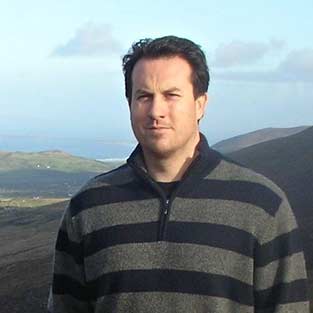
By Ronan O'Connell
Travel Writer23 Sep 2019 - 6 Minute Read
I can’t remember most of what he said. Engulfed by disbelief and dread, I was in no proper state for any conversation, let alone one this momentous. But two words managed to implant themselves in my memory: “Don’t stop”.
As I sobbed in a hotel room in Osaka, a phone pressed to my right ear, my father was giving me his final advice from his death bed in Ireland. Stricken by a blood clot, he had been given just hours to live. Yet he was lucid enough to manage one final call with me, his only son.
The man who inspired me to become a travel journalist wanted to remind me I had the best job in the world.
While “don’t stop” was his last message to me, “won’t stop” could have been his motto. Even as he entered his late 60s, badly hindered by a physical disability, my father Raymond O’Connell continued to travel. Not relaxing trips, either. Not cruises or package holidays or lounging in a hammock. Instead, he delved into exotic cities in India, China, and Indonesia, traversing them on foot until these foreign locations seeped into his pores.
Adventures were what he craved. From the moment he ran away from his Irish family at age 15, snuck onto a boat to England, and grifted for months as a pool shark on the streets of London, he was determined to live an extraordinary life. In his 20s, he completed risky solo trips in the Middle East and Asia, voyages I wouldn’t dare to undertake myself.
Once I began traveling with him 15 years ago, he caught a second wind. His mind brimmed with ideas and itineraries. Small talk invariably transitioned to discussion of our next journey. I loved few things more than surprising him with a new trip I’d booked for us. This was how his, and our, final adventure began.
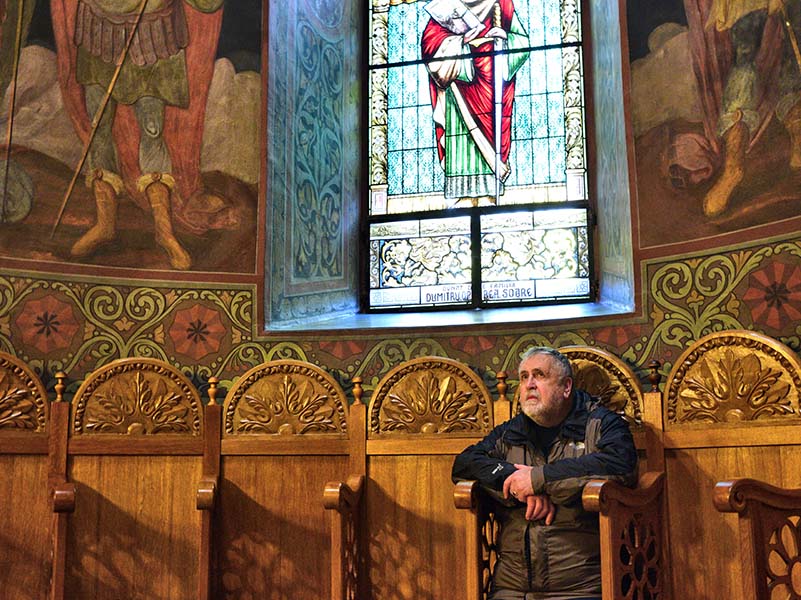
While watching TV together one night, I asked him: “Where have you not been that you really want to go?” Romania and Athens, was his answer. Without telling him, I immediately went online and booked us flights to Bucharest, on to Athens, then through Rome back to Ireland.
“Those protests in Athens look pretty intense,” I said as we watched the news. “Hopefully we won’t get caught up in them when we’re traveling there next month.” Dad shot me a look that I knew well – fierce excitement. He may have been 67 years old, but, in that moment, he felt as young as his son.
At 2am, I saw the light on in his room. He was wide awake, reading about Nicolae Ceausescu, the corrupt Romanian communist leader who ran the country from 1965 until 1989.
Sure enough, all he’d absorbed came pouring off his tongue on the first day of our trip. We were on a train headed from Bucharest to the Transylvanian mountains. Sitting opposite us were two Romanian men in their mid-20s, who Dad had been chatting to non-stop since they took their seats.
While I’ve always tended towards shyness, conversation was as important as travel to my father. One drawback was that he had no filter when he spoke. Soon, he inundated the young men with his deep knowledge of Ceausescu and the atrocities he’d delivered upon their countrymen. They were dismayed. Romanians have made a concerted effort to move on from this dark period; these men didn’t need a history lesson.
Many times, things went awry on our travels. My inclination was to get upset, to curse our luck, to curse out loud even. Dad would just smile and rub my shoulder: “We’ll make a good story out of this, son.”
While his straight-shooting caused some awkward moments across our many trips, Dad’s gregarious nature and delight in making foreign friends gradually rubbed off on me. So, too, did his composure. Many times, things went awry on our travels – a flight was missed, a valuable item was lost, a VISA was incorrect, an illness took hold.
My inclination was to get upset, to curse our luck, to curse out loud even. Dad would just smile and rub my shoulder: “We’ll make a good story out of this, son.” That’s exactly what he said on our return trip to Bucharest, as we looked set to miss our flight to Athens. We made that flight – just.
“I don’t know how he does it,” I thought to myself, in our Athens apartment, as I peeled the socks off his swollen feet. His left ankle, in particular, had given him constant discomfort for the previous 12 years. He’d shattered it when he fell from a ladder onto concrete – one of the worst compound fractures his doctor had ever seen. Yet that hadn’t stopped Dad. He’d limped and winced his way around more than 30 countries since then.
Whenever I suggested we take a break he’d say: “You can sit down if you want, I’ve got something I want to go see over here.” It wasn’t bravado, either. He wasn’t trying to look courageous. His physical limitations were simply overpowered by his insatiable desire to experience something new.
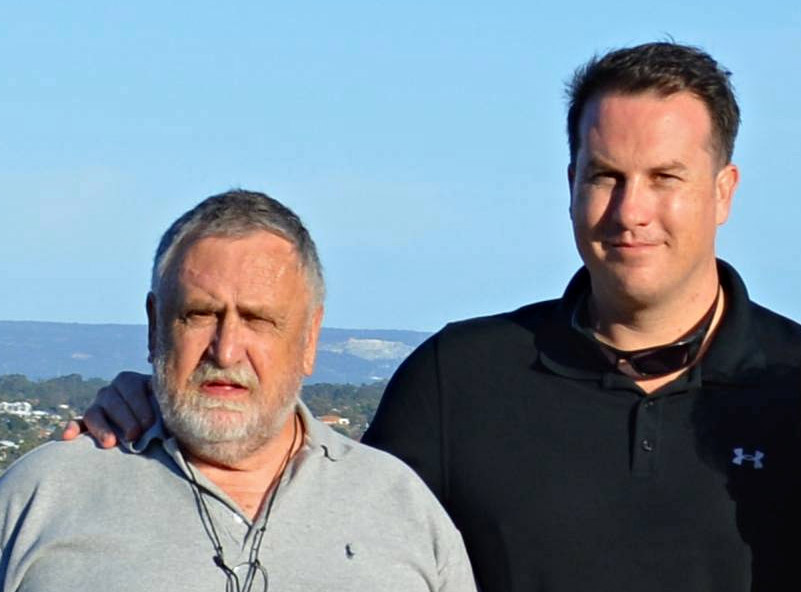
In hindsight, I should have forced him to slow down. He walked all over Bucharest, Transylvania, Athens, Rome. By the end of the 10-day trip, his mind could no longer override his body. His left ankle was twice the size of his right. His chest was congested. We didn’t know it, but he had early stage bronchitis.
Dad spent weeks in hospital back in Ireland trying to recover. He never did – not fully, at least. A few months later he got ill once more. This time it was worse.
The rare Guillain-Barre Syndrome had left him “shut in.” He was completely paralyzed, unable to see or talk or eat. Yet, perversely, he remained conscious. Doctors encouraged us to chat to him, even though he could not respond. Day after day, month after month, my mother, my wife, and I sat by his hospital bed.
During one-way conversations, I would recount our funniest moments while traveling. Like when he accidentally filmed a group of men going to the toilet in Mumbai. Or when I got him drunk in China so I could finally beat him at pool. He just lay there, frozen. I missed the way his belly would heave in and out when I made him laugh.
Eventually, he came out of his paralysis and could share in the hilarity. But he never did leave hospital. When doctors said he was almost ready to go home, I took the chance to fly to Asia for my freelance journalism job.
Then, in the middle of a chilly Osaka night, my phone rang. Our final conversation ensued. Jokes were exchanged, endless love was expressed, and promises were made. Among them was my agreement that I wouldn’t stop traveling. My father never did – until, eventually, travel stopped him. Yet he wouldn’t have wanted it any other way. Adventure had powered him for more than five decades. Now he had handed the torch to me. A parting gift of the most wonderful kind.
Discover similar stories in
love
Travel Writer
Ronan is a journalist and photographer with 16 years of experience as a reporter.
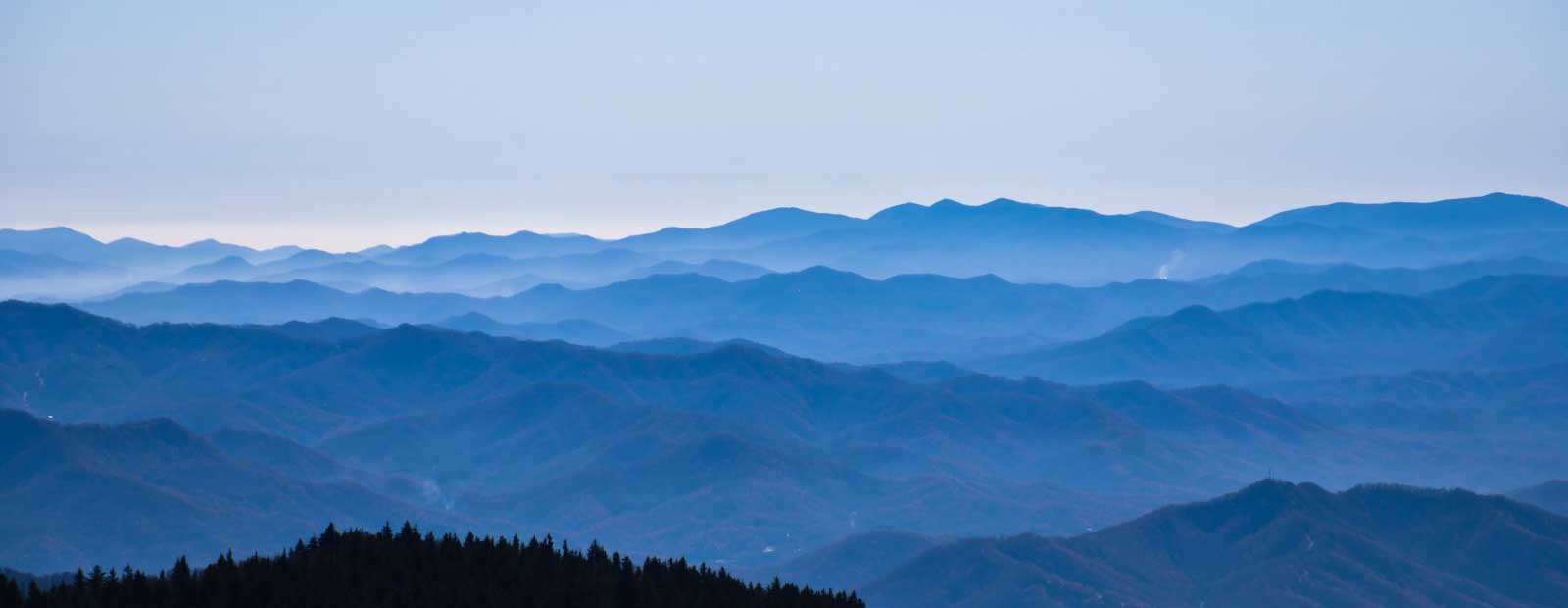


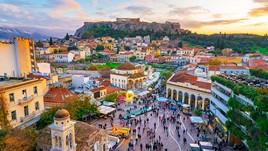
4 Comments
What a beautiful story. I'm so sorry about the loss of you father -- sounds like a great man.
Your story made me cry. It's so hard to lose our dads. Mine was a traveller, too. Thank you for sharing your experience so eloquently.
This is so beautiful Ronan. Thanks for sharing this story. Hold the torch well and keep living it- he is with you.
Beautiful story. That is awesome that you were able to have all those memories with your dad. I trust you will carry the torch!